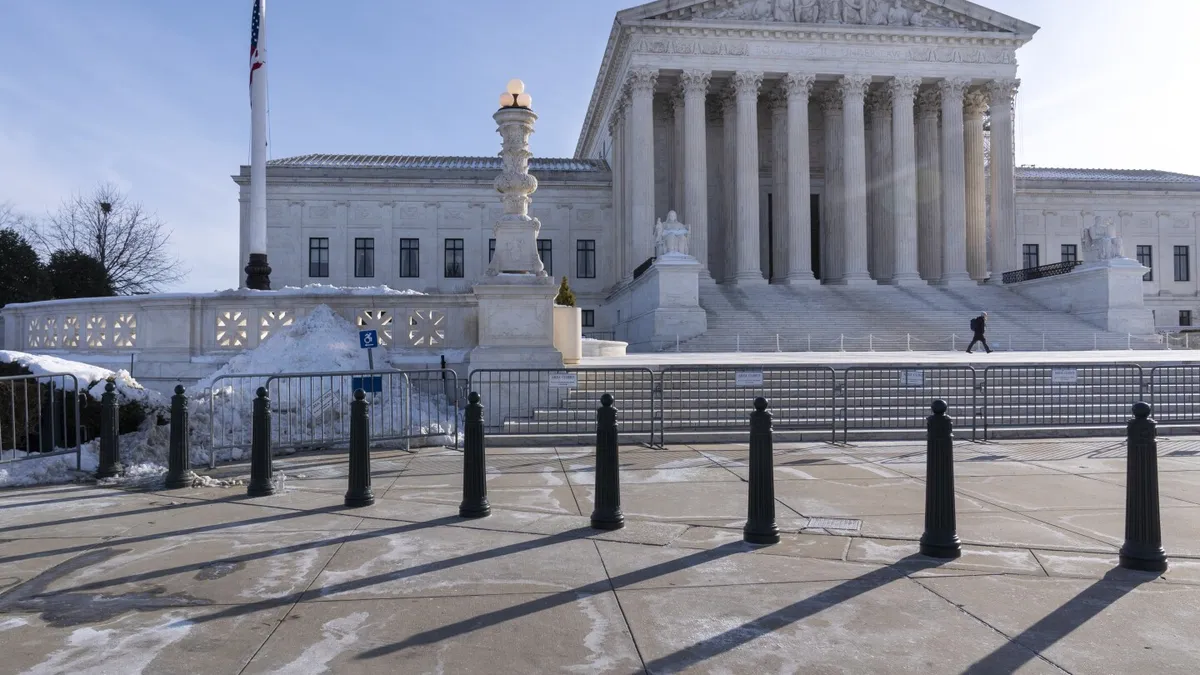
In a significant ruling on Monday, the Supreme Court allowed the Trump administration to revoke legal protections for approximately 350,000 Venezuelans, which may expose them to the risk of deportation. This decision came with only one dissenting opinion and effectively puts on hold a previous ruling from a federal judge in San Francisco that had maintained Temporary Protected Status (TPS) for Venezuelans, status that was set to expire last month.
The Temporary Protected Status permits individuals already residing in the United States to live and work legally, as their home countries are deemed unsafe for return due to factors such as natural disasters or civil unrest. The high court’s ruling is viewed as the “single largest action in modern American history” that strips any group of non-citizens of their immigration status, according to Ahilan Arulanantham, an attorney representing the Venezuelan migrants.
Cecilia Gonzalez Herrera, one of the individuals who filed a lawsuit to challenge the administration's decision, expressed deep concern about the implications of the ruling. “This decision will force families to be in an impossible position, either choosing to survive or choosing stability,” she stated. Gonzalez Herrera emphasized that “Venezuelans are not criminals” and highlighted the urgent need for individuals to thrive without the fear of being sent back to dangerous conditions in their home country.
The full ramifications of this ruling on the lives of the affected individuals remain uncertain, as noted by Arulanantham. The Department of Homeland Security has yet to comment on the Supreme Court’s latest order. Previously, a federal appeals court denied the administration's request to pause the ruling while the lawsuit is ongoing. A hearing is scheduled for next week in front of U.S. District Judge Edward Chen, who previously halted the administration's efforts to revoke TPS.
This case is part of a series of emergency appeals made by President Donald Trump’s administration to the Supreme Court, many of which are related to immigration issues affecting Venezuelans. Notably, last week, the government requested the court’s permission to terminate humanitarian parole for hundreds of thousands of immigrants from not only Venezuela but also Cuba, Haiti, and Nicaragua, potentially leading to widespread deportations.
Additionally, the Supreme Court has been involved in curtailing Trump’s attempts to swiftly deport Venezuelans accused of gang affiliations to a prison in El Salvador under the Alien Enemies Act, a law from the 18th century. The ongoing economic and political crisis in Venezuela has led to over 7.7 million people fleeing the country since 2013, with inflation recently soaring to 172% in April. This dire situation prompted President Nicolás Maduro to declare an “economic emergency” last month, amid international condemnation of his reelection as illegitimate and his crackdown on political dissenters.
The administration has been aggressively working to terminate various immigration protections, including TPS for a total of 600,000 Venezuelans and 500,000 Haitians. TPS is designed to be granted in increments of 18 months, and these protections were initially set to expire on April 7. Judge Chen determined that allowing TPS to expire would significantly disrupt the lives of hundreds of thousands and could result in billions in lost economic activity.
In his argument, Solicitor General D. John Sauer contended that Chen’s ruling overstepped the administration's authority concerning immigration and foreign affairs. Sauer also mentioned that individuals affected by the termination of TPS may have alternative legal avenues to remain in the U.S., asserting that the decision to end TPS does not equate to a final removal order.
Created by Congress in 1990, TPS aims to prevent deportations to nations experiencing significant hardships due to natural disasters or civil unrest. Justice Ketanji Brown Jackson publicly stated her opposition to the administration’s emergency appeal, advocating for the protections of Venezuelans in the face of adversity.
This recent Supreme Court ruling will undoubtedly have lasting effects on the Venezuelan community in the United States, raising critical questions about their future and the broader implications for immigration policy.